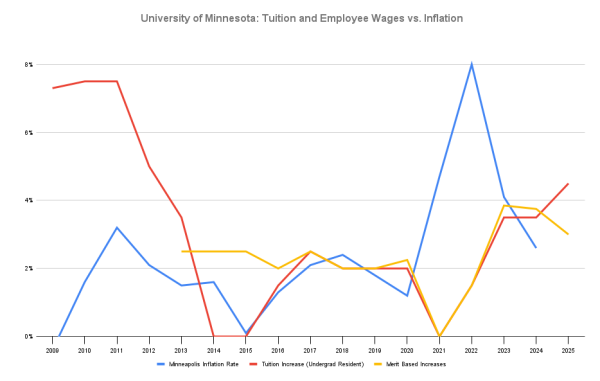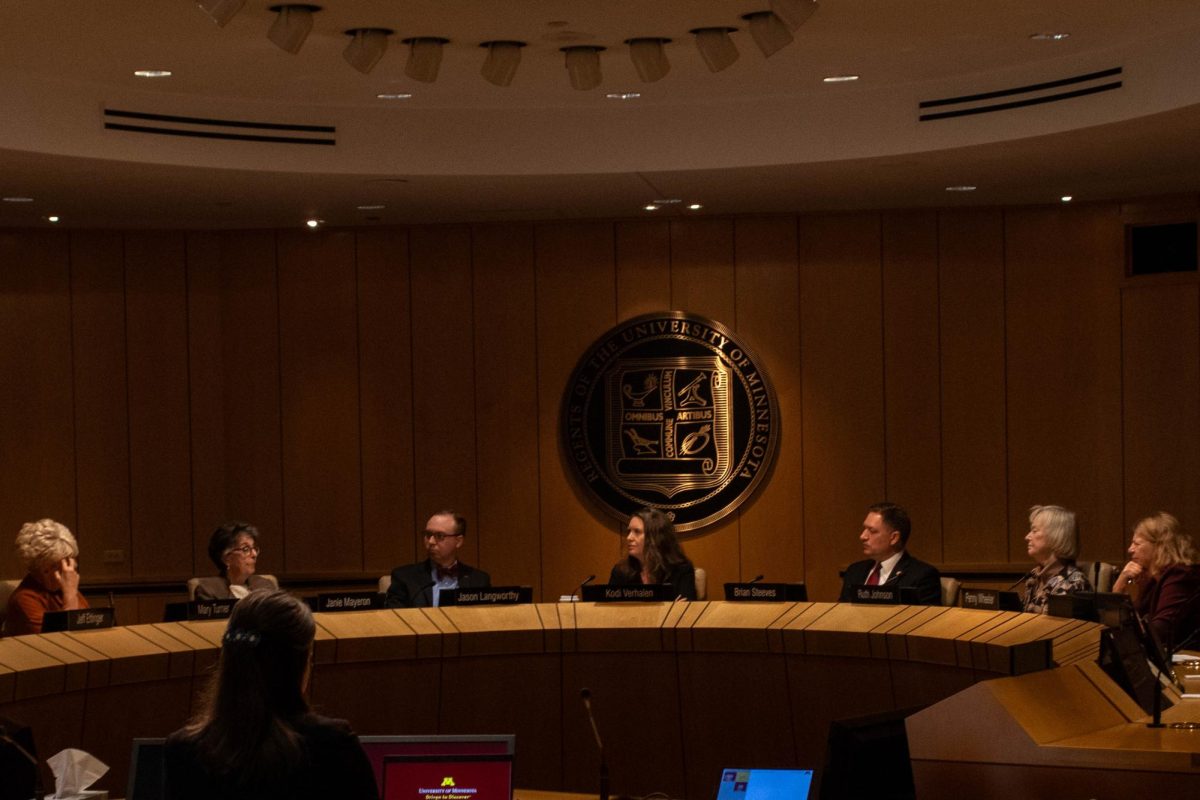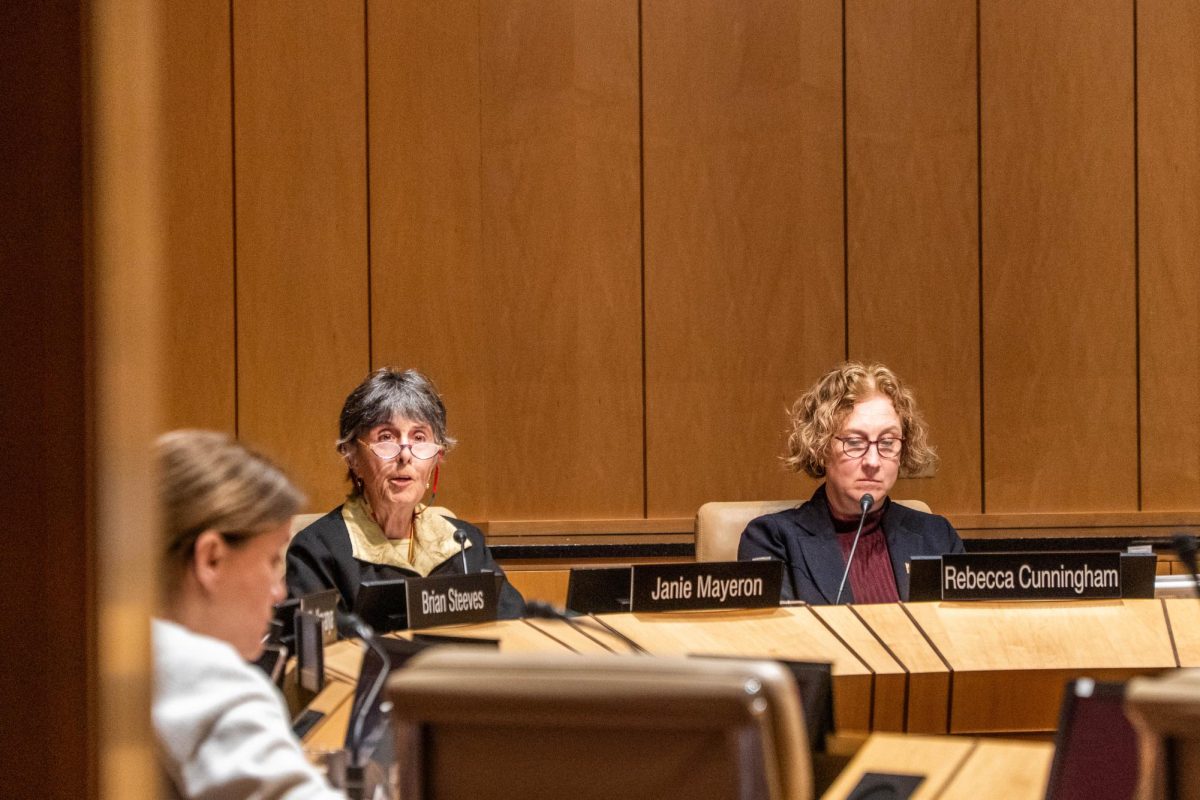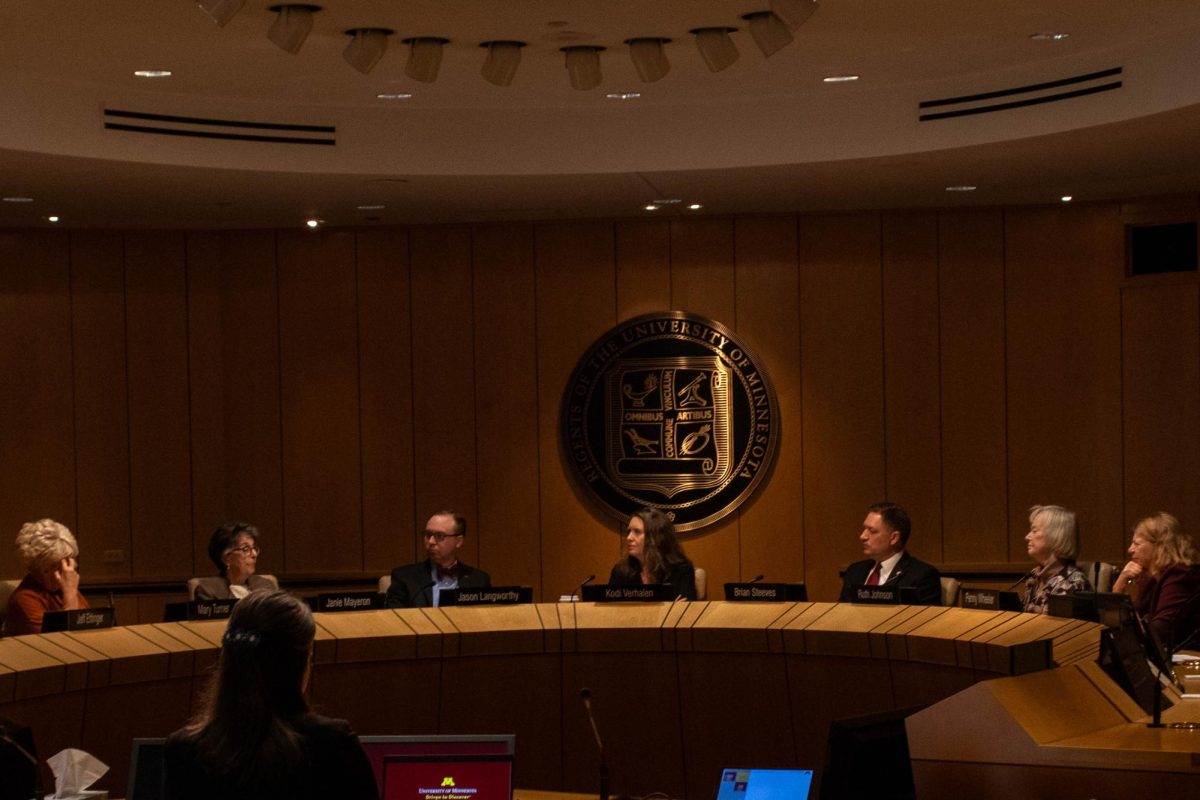Despite rising revenue at the University of Minnesota, the school is increasing tuition rates as funding from the state remains flat.
University Budget Director Julie Tonneson said in public meetings last year each campus has seen a decline in student numbers, with more students leaving, graduating early and transferring out of the University, the Star Tribune reported. Now, DFL and Republican legislators are expressing concerns with the University’s declining enrollment projections but are hesitant to contribute more money.
University Public Relations said Tonneson was unavailable for comment on this story.
BOTTOM LINE UP FRONT:
Rep. Gene Pelowski, DFL-Winona, who serves as the House Higher Education Finance and Policy committee chair, said although enrollment is stable at the University’s Twin Cities campus, declining enrollment at other campuses and the Minnesota State system necessitates a more sustainable budget plan.
Pelowski said the University should have been preparing a budget that makes the institution stable long-term rather than increasing tuition.
“I think the time has come where you just can’t go to students as a bank,” Pelowski said. “They are not a bank.”
Every two years, the University submits a biennial budget request, generally requesting continued or increased state appropriations, according to the University Budget Office. The University president leads the development of the two-year financial request in the summer and fall of each even-numbered year, and the Board of Regents approves the budget before it is submitted.
Melisa López Franzen, the executive director of government and community relations for the University, oversees the majority of interactions between the University and the Minnesota Legislature. She began at the University in August 2023.
During López Franzen’s time in the role, her main focus has been building back a team that can pass along the University’s story and requests at the local, federal and state levels.
There has been a close relationship between the capital and administration since the University’s founding, López Franzen said. This session’s focus was creating a stronger presence in the capital and building relationships with legislators.
The University made several requests for new legislative funding for fiscal year 2025, none of which were met, López Franzen said. The 2023-24 legislative session was a biennium, meaning no budget bills were required to be passed and all requests were supplemental.
The state typically approves the request the following May for the budget cycle that begins in July, according to the University Budget Office.
It is getting harder and harder to keep tuition at a flat rate for students with continued lack of legislative support, López Franzen said.
Former University Interim President Jeff Ettinger said the University’s relationship with the legislature is productive overall, and the administration is continuing its efforts to talk with legislators.
“I hope we’re making good progress in establishing good relationships,” Ettinger said.
The state funding both years upfront could make budgeting easier, rather than the University using non-budget years as a chance for supplementary funding, Ettinger said. Getting bills passed can be more difficult in non-budget years.
Pelowski said it is not the Legislature that is the main problem, it is the University.
“How can you have $500 million in things that are in need of repair?” Pelowski said. “That comes about with decades of neglect.”
University Services Vice President Alice Roberts-Davis said in the June Board Finance Committee meeting that the Legislature failed to provide capital support to the University six times in the past decade.
“It’s a troubling trend and our backlog of needs continues to grow each year,” Roberts-Davis said. “There just is not funding to offset that growth.”
Pelowski said when the University presented its budget to the Legislature in 2023, percentages did not work in committee and the University wanted to make in-session changes. He added that he told them to come back when the major errors were fixed.
“When you’re asking for not millions or hundreds of millions, but billions, you better get your numbers right,” Pelowski said. “The University has to come into the 21st century and recognize what its problems are and then build a budget to address them.”

WHAT TO KNOW:
- The University of Minnesota is increasing both tuition and the size of the budget for FY 2025 due to growing essential costs and flat state investment, a University of Minnesota Press release reads.
- The budget anticipates approximately $5.1 billion in revenue for the coming year to cover about $5 billion in expenses, according to the University press release. The tuition increase is expected to cover additional costs regarding inflation, “necessary spending on critical operation and safety needs” and “internal reallocation of existing resources” after additional funding was not approved, according to the press release.
- Proposed University operating budget revenue streams are projected to grow from about $4.5 billion to $5.1 billion. This is about a 13% increase similar in scope to the requested $625 million state investment.
- Twin Cities campus tuition will increase by 4.5% for in-state students and 5.5% for out-of-state students, but all five campuses’ student bodies will experience tuition increases of at least 1.5%, the Daily reported.
- Yearly costs are approximately $18,000 for the upcoming school year, and the current undergraduate resident tuition rate of $15,148 is almost one-quarter higher than the tuition rate a decade ago. This is slightly lower than general inflation over the same timeframe, which has increased almost 32%.
- During the 2024 Minnesota legislative session, the Board of Regents requested a total of $625 million in additional funds — $80 million for academic health, $500 million in Higher Education Asset Preservation and Replacement projects and $45 million for core missions, such as faculty and staff compensation, which were not approved by the Legislature.
- The unapproved $500 million 2024 Capital Request would have addressed buildings that are in poor condition and provided maintenance and repair funding. Roberts-Davis said in a Board June committee meeting that “we have to somehow come up with alternative ways to fund these needs.”
- Former University Finance and Operations Vice President Myron Frans said in a 2023 Star Tribune interview that tuition revenue was set to come in around $966 million for 2023, about $24 million less than originally projected. Tuition revenue actually came in at around $795 million, according to the 2023 University Budget report.
THE BUDGET IS A’ CHANGIN

University Public Relations Director Jake Ricker said the University budget is chiefly made up of the operating budget and the capital budget. He said the operating budget focuses on operations, raises and tuition, while the capital budget deals with facilities, infrastructure and other long-term projects.
According to the June Board of Regents’ June Finance and Operation Committee notes, $75 million of the $81 million capital improvement budget is going to repair and replacement funds and $6 million to University projects, such as relocating IT staff to another building.
According to the University’s FY25 budget and government relations documents, there is a 3.3% across-the-board cost increase reflecting inflation, wage growth operations and “excellence” expenditures. While the full extent of changes to the budget is unclear, there are projected increases in employee compensation and increased student services as well as reallocations of unit resources.
Ricker said merit-based wage increases and reallocation decisions become local unit decisions, and the University does not tell individual colleges how to meet those targets.
“They come up with their own proposals individually that come back to the budget office,” Ricker said.
The University did not respond in time to a request for reallocation data.
Key goals of University requests for the past session were keeping tuition affordable, retaining staff, funding student services, maintaining campus safety and supporting research and technology infrastructure, according to the supplemental budget request.
Predictions for budget requests in 2025-26 are a continued push for Higher Education Asset Preservation and Replacement project funding, funding for preserving existing infrastructure and programs and academic health funding, López Franzen said. Funding requests within the next session will typically remain in the ballpark of what was requested in the past session.
Ricker said those plans are fairly dynamic and will not be known for another 12 to 15 months.
Funding for major renovations and repairs on buildings often relies on the state to provide two-thirds of the funding, and the University would finish the project, Ricker said.
“The University has revenue sources like tuition in its operating budget, but we can’t turn around and say we’re going to use tuition to do this other thing, utilities and infrastructure,” Ricker said. “It’s an independent budget with a different set of revenue levers and many different expenses.”
The budget proposed 3% merit-based increases for all employees and a required 3% increase for labor-represented employees, according to University relations.
Regent Robyn Gulley said in the June Board meeting that she had concerns regarding merit-based wage increases.
“We don’t have a way of tracking who has access to that merit pool and how it’s distributed,” Gulley said. “That paired with the high tuition raises gives me significant pause.”
BUDGET CONCERNS
Former Regent Michael Hsu said the budget is frequently a battle between the legislators, the governor and the University. He said the state soured on that whole plan due to a lack of financial clarity as well as “being held hostage” by University tuition increase threats.
“That’s the game they play, and if they don’t get money from the state they’ll just raise tuition, ’I’m going to make the students pay more, and then I’m going to blame you for it,’” Hsu said
Hsu said it is hard to know how much the University spends because when he was a regent, individual colleges and units were hesitant to release information on their reserves.
“At the end of the year, the regents know almost nothing about the budget,” Hsu said. “Regents are told, ‘Hey, we got to do this because this is how much costs are going to increase.’”
Former Morris Student Representative Cal Mergendahl said the state and University are “passing the buck” in a way that does not address either’s concerns. They said the state wants the University to stop wasting money on high administrative costs, and the University believes it cannot provide a good education without additional money. Mergendahl is also a former employee of the Minnesota Daily.
“Nobody wants to take responsibility for it,” Mergendahl said. “Until somebody else does, nothing’s gonna get done.”
There is a lack of concern regarding how tuition increases affect enrollment down the line, Hsu said. He added if tuition continues to increase faster than neighboring states, schools with lower tuition rates will poach prospective students.
“Everyone just says, ‘Oh yeah, we’ll just raise tuition another 5% this year,’” Hsu said. “‘Who cares? Who cares about the kids who are going to college in 2050?’”
Corrections: A previous version of this article incorrectly stated the tuition revenue in 2023. It was 795 million. A previous version of this article stated the FY 25 budget was unavailable, which is incorrect. Certain lines and paraphrases have been edited for clarity.





















COLA4all
Jul 10, 2024 at 2:17 pm
It’s important to point out that merit based pay increases, while they usually occur each year, are at or around 2%. When inflation / cost of living is up around 8%, it’s fair to say that merit pay is essentially a wage freeze that helps the U save mucho dinero. It would be so refreshing to see upper admin take a pay cut out of solidarity instead of using students and non-tenure track instructors as revenue sources.